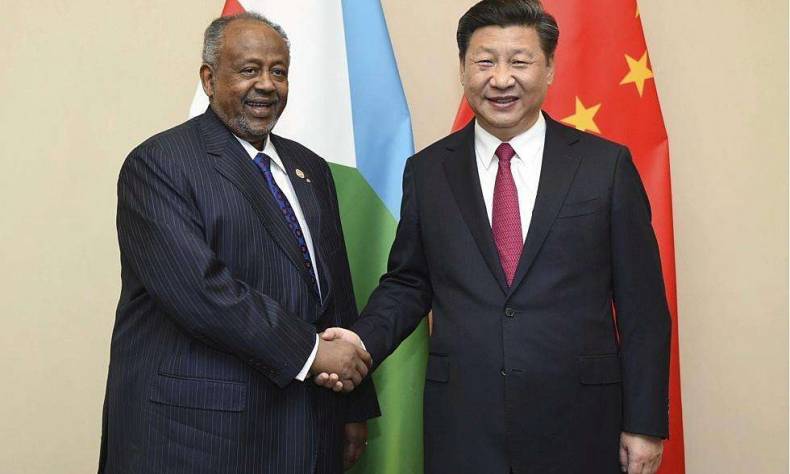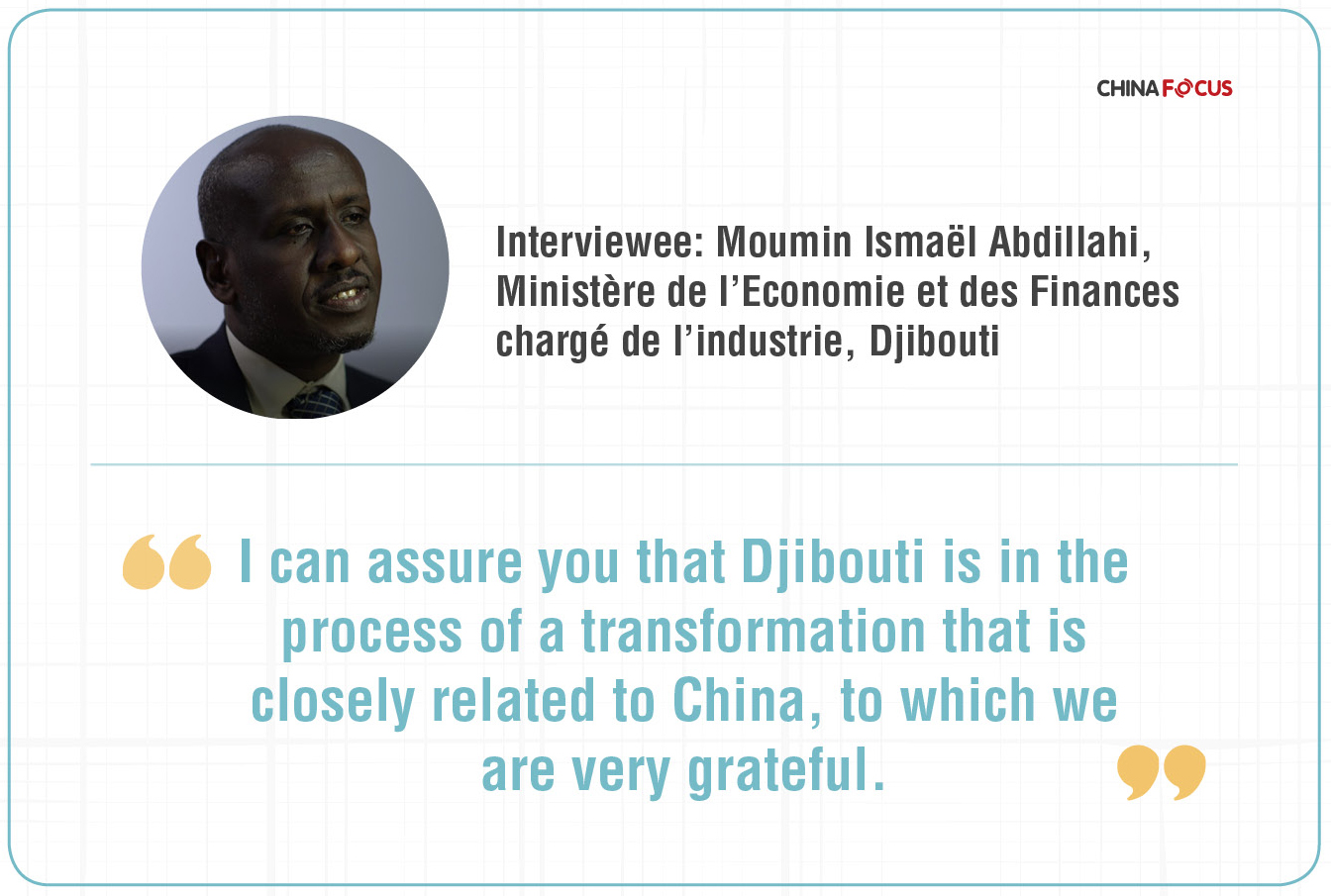
Djibouti: Our Chinese friends are always there for us
“Thanks to the aid provided by China, our country has undergone significant changes.”
We Are One: When China Meets Africa
The 2018 Beijing Summit of the Forum on China-Africa Cooperation (FOCAC) will be held in Beijing from September 3rd to 4th. The summit’s theme is “China and Africa: Towards an even stronger community with a shared future, through win-win co-operation.”
Chinese President Xi Jinping will chair the summit and host related events. Leaders of FOCAC’s African members will attend the summit, and representatives of relevant regional organizations in Africa and international organizations will also participate in related activities.
So, what is the status of China-Africa relations? What can be done to deepen mutual cooperation? China Focus has interviewed people from 10 African countries, revealing the truth of China-Africa relations.
China Focus: Could you please tell us a bit about the projects in Djibouti that China has invested in, and what is the effect of these projects on the people of Djibouti?
Moumin Ismaël Abdillahi: In Djibouti, it has been possible to modernize our telecommunication system as well as all related cable lines, only with the help of China. I feel very proud when I discuss with my Chinese friends about the official visit by our president His Excellency Ismaïl Omar Guelleh to Beijing, which was just after President Trump’s visit to China. This shows the importance that China’s President places on Djibouti. During this visit, the leaders of both countries agreed to take the relationship further and develop a strong strategic partnership.
Almost all of our infrastructure projects that are being developed are funded by China. Let me talk about a project that is of immense strategic significance for the Republic of Djibouti – the DMP (Doraleh Multipurpose Port), a large port that is unprecedented in scale in Africa. Thanks to China, the port is now operational. We also have the first electric train, a revolutionary project that has brought in a lot of time savings, funded by China. It used to take 48 hours from our capital Djibouti to Addis Ababa by the old colonial train, but now it takes less than six hours. It is the first time that an electric train has been put into use in Africa.
The water supply project developed by China to supply water from Ethiopia to Djibouti, is a project which we never dreamt would be realized. Water supply is a strategic problem. Lots of wars have been waged for water. Now, thanks to China, the water transportation project has brought us peace. Ethiopia supplies water to Djibouti and this cooperation has deepened and reinforced our relationship.
Apart from the water transportation project and the electric train, another large project is the natural gas transmission project. A private Chinese company extracts natural gas from the Ogaden region in Ethiopia and transports it to Djibouti after processing. We used to say that Djibouti is an underdeveloped country, but now we are becoming an emerging developing country. We need to thank our dear Chinese friends for all of this.
China Focus: What are the financial benefits that the people of Djibouti have gained by the development of the port that you mentioned?
Moumin Ismaël Abdillahi: Some people talk about the debt Djibouti owes to China, however, the fact is that these debts are used for public facilities like ports and Djibouti Telecom. These are entities that can be self-sustaining and profitable and can easily pay off their debt. Although in the first few years it would be a bit difficult for the country’s budget, we don’t have to worry as our Chinese friends are always by our side.
I can tell you one thing, without sophisticated infrastructure, without extensive construction work in our country and without improvements to our systems, we would not be able to get rid of the under-developed tag, nor be able to take up the path to development. These infrastructures are vital to our country’s economic development. Thanks to the aid provided by China, our country has undergone significant changes.
We now have eight ports, while earlier we only had one. We have gone from suffering from water shortage to having access to abundant water supply. Yes, the word I used is abundant, as the water transported from Ethiopia, is used to supply drinking water to even our suburbs Balbala. This is very important as it also creates a lot of job opportunities. Hundreds of young people are employed because of this project. On July 4th there was an inauguration ceremony for a megaproject operated by a private Chinese company, which has created 20,000 jobs. So, I can assure you that Djibouti is in the process of a transformation that is closely related to China, to which we are very grateful.
China Focus: You are very confident about the cooperation between Djibouti and China. In what specific areas do you wish Djibouti and China can further cooperate?
Moumin Ismaël Abdillahi: I should say that China can cooperate with Djibouti in almost every area. The only weak link is the cooperation in telecommunication. China’s private company StarTimes and people from related industries in China are now looking at updating and promoting digital development in Djibouti.
Furthermore, I would like to mention China’s military base in Djibouti. You know, this is the first overseas military base of China. Unfortunately, some media have criticized China, calling it neo-colonization and military occupation of Africa. I can assure you that they are mistaken. China has never taken any action to invade other countries. It has positioned its military base in Djibouti not to conquer Africa militarily, but to maintain security in conflict areas. Not only are there Chinese in Djibouti, but also Americans and Europeans such as the French. None of these countries intend to occupy Africa, so why are people saying that by establishing a military base in Djibouti, China is showing its ambition to conquer the world? Sometimes the Western media exaggerate things.
Interviewer: Zhong Lei
video: Zhang Liang, Hua Xuan
Editor: Elena
 Facebook
Facebook
 Twitter
Twitter
 Linkedin
Linkedin
 Google +
Google +











